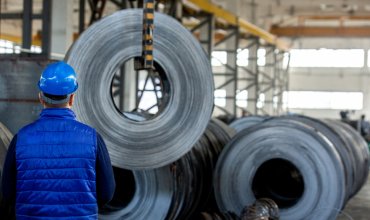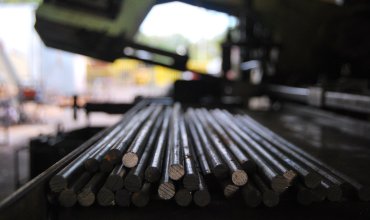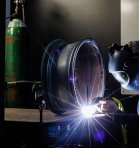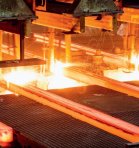Copper is one of the most important metals used in industry around the world. Its unique conductive properties make it difficult to imagine the modern electronics industry without its presence. From integrated circuits to cables in appliances, copper plays a key role in almost every aspect of modern technology. That's why it's worth taking a look at what properties of copper make it indispensable in electronics and how this affects the development of the industry in Poland.
Copper as an element: what sets it apart?
Copper is one of the first metals known to mankind. Archaeological excavations prove that it was used as early as ancient times. What makes it so unique? First of all, its excellent electrical conductivity. Copper conducts electricity better than most other metals, so it's ideal for making electrical wires and electronic components. This is the main reason why its importance in the electronics industry is so high. In addition, copper is relatively soft and easy to work with, making it possible to create the intricate shapes needed for complex electronic circuits.
Why is copper essential in electronics manufacturing?
The answer lies in several basic properties of copper that make it indispensable in electronics. In addition to its exceptional conductivity, copper has the ability to withstand high temperatures without losing its properties. This is particularly important for components that must operate in extreme conditions. Even at extremely high temperatures, copper retains its conductive properties, which is extremely important for the durability and efficiency of electronic devices. Corrosion resistance is also not insignificant, thanks to which copper retains its properties for a long time, minimizing the need to replace components.
Poland map of copper resources
Poland, specifically the Lower Silesia region, is one of the largest copper producers in the world. The Copper Belt, encompassing cities such as Lubin, Głogów and Polkowice, plays a key role in the country's economy, supplying valuable raw material to both domestic and foreign markets. Thanks to intensive copper mining and processing, Poland ranks high in global rankings for production of the metal. This not only feeds the economy, but also influences the development of technology, enabling Polish companies to innovate in the field of electronics.
Application of copper in modern technologies
Today, copper plays an irreplaceable role in the development of modern technologies. It is used in the production of various types of electronic components, from microscopic components in smartphones to huge wires in the electrical engineering industry. The development of communication technologies, such as 5G networks, also relies on infrastructure made of copper to ensure fast and reliable data transmission. Photovoltaic cells and other renewable energy sources also benefit from copper because of its durability and ability to transmit electricity efficiently.
Environmental aspects of copper use
Surprisingly to some, copper recycling is playing an increasingly important role in the global economy. Copper can be recycled without loss of quality, making it one of the most environmentally friendly raw materials. Poland, with its advanced recycling technologies, plays an important role in recovering copper from electronic devices. The recycling industry not only reduces the need for raw material extraction, but also contributes to the reduction of electronic waste, which has a positive impact on the environment.
The future of copper in the electronics industry
Looking ahead, the role of copper in the electronics industry is expected to grow steadily. The growing sector of electric vehicles, smart homes or modern medical devices depends heavily on this metal. In Poland, investment in research into new applications and technologies using copper is becoming increasingly common. KGHM Polska Miedz, a major player in the market, is constantly investing in innovative processing and production technologies, which contributes to maintaining global competitiveness.
Summary: Copper as the foundation of modern electronics
Copper and its conductive properties are irreplaceable in the electronics industry, which is one of the fastest growing sectors of the economy. Thanks to its unique characteristics, such as high conductivity and resistance to changing environmental conditions, copper remains the foundation of technology development. Poland, being one of the main producers of this valuable metal, plays a key role in the global supply chain. Investment in the development and recycling of copper contributes to sustainable development and strengthens Poland's position on the international stage. Certainly, copper will continue to shape the future of the electronics industry in the coming years.

















